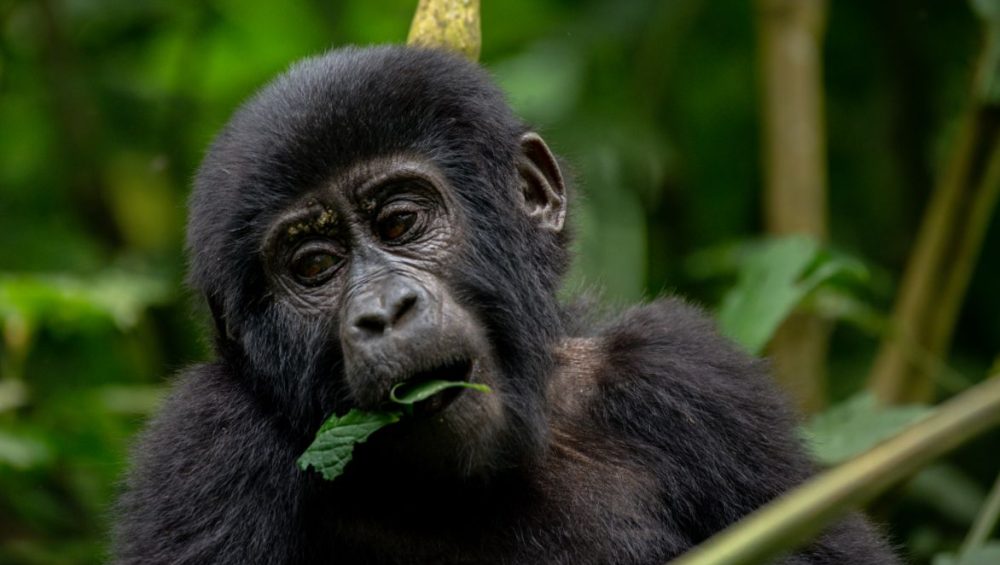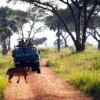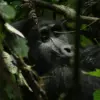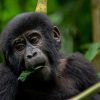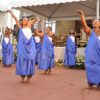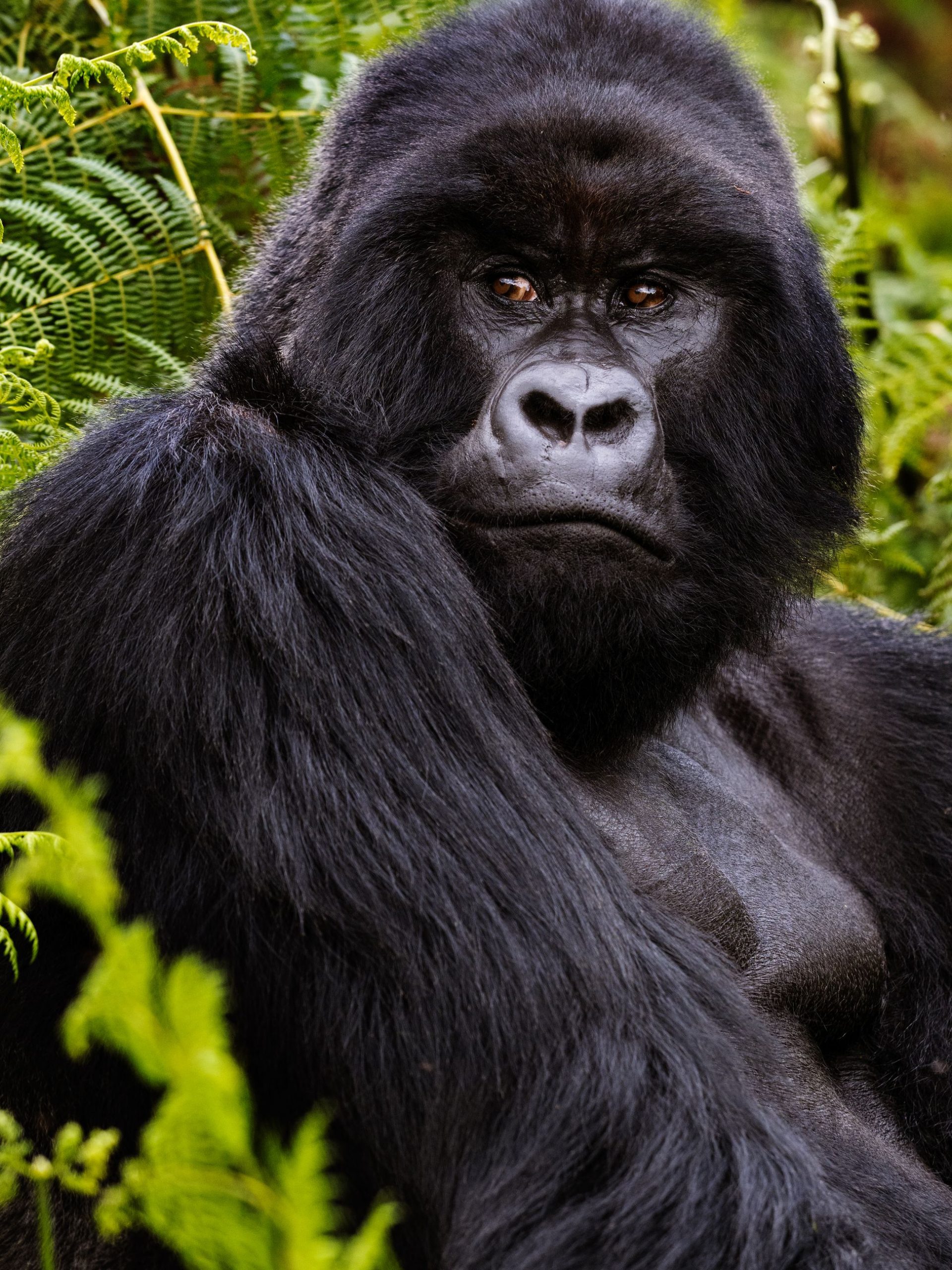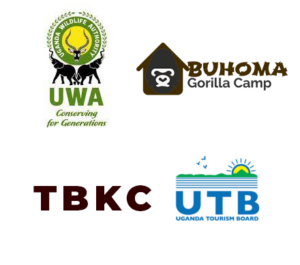home to the mountain Gorillas in Uganda. It holds half of the mountain gorilla in the whole world. With exception of the Covid-19 days, a day never passes without seeing any tourist vehicle entering Bwindi Impenetrable National Park, which really brings a smile to the people that depend directly and indirectly on Tourism; the potters, the village guides, and the craft shop owners all put a smile on their faces after seeing the tourist vehicles enter Bwindi.
The following morning, the craft shops are opened up, the potters well dressed in their uniforms walk to the park offices to render their services to the tourists. The tourists in their preferred lodges after having their breakfast and having a short briefing from the Guides, they then move to the park offices for a briefing from the head Ranger about what to do and what not to do in the park. For example, not to look at the Gorillas straight in the eyes, not to put on the flashlight while taking pictures and more so others. After the briefing the clients then hold their walking sticks, the potters holding their bags and carrying those that do not trust themselves in hiking. Each client that hires a Potter has to pay the Potter not less than $5 so it’s the tourists’ choice to give the Potter the amount he/she wants to give according to the services offered.
Hiking then goes on in search for the gorillas, they are sometimes easily found because the rangers start tracking them from where they left them the previous day. Even though they move away, they still do not move over the night. Early in the morning the Rangers go and follow them up easing the search. When at the gorillas the tourists are given one full hour watching the mountain gorillas, the Gorillas really portray human character like breastfeeding the young ones just like the humans. During nighttime they lay down the soft tree branches and sleep, the juveniles playing around, the silverback safeguarding the family just like any father at home.
After one log hour with the Gorillas, the tourists then head back to the park offices. Here they receive certificates of Gorilla trekking and of course taking pictures of success. Payments to the potters are made at that moment after gorilla trekking. The tour Guides are there patiently waiting for the tourists in their Vans for the next step according to their itinerary whereby some are supposed to travel immediately either to another Destination or stay in Bwindi for more night(s).
To those whose itinerary says that they have to stay for one more night, they then move to their lodges and have some rest for some few hours or have hot lunch just in case they did not take packer lunch with them while going for the Gorilla Trekking. The packed lunch always contains some snacks and drinks to keep their stomach okay, because there is no guarantee that the gorillas are to be found in the estimated time so it might take long and then the tourists might feel hungry.
After the rest is when the LOCAL GUIDES start moving around waiting for the tourists that may have booked with them to go for the village or community walks around Bwindi. The craft shop boys are always at their shops ready to showcase their craft works and get some money for food and other home necessities, this is where the people who are not working in the tourism field become dependents of the field because of the local guides, craft shops owners and the potters also get some money to run their shops or even get some school fees for their children making all the people of Bwindi dependent on Tourism directly and indirectly.
When the tourists are out on village walks, they happen to visit the neighboring villages around, meet the local people, associate with them and see how best they move on with their life, chill with them and even have some taste of their food. Tourists then visit the Batwa “Pygmies” who are one of the oldest people in Africa. For centuries they roamed the forest looking for fruits and honey and hunted with bows and trained dogs. As the woods were cut down by Bantu, Batwa numbers dwindled.
After Bwindi was made a National Park, the Pygmies are managing to associate with the local Communities and moving in the same line of living with life. The Birder tourists also move around with their Guides, with the binoculars, notebooks, pens and other birding equipment looking for so many birds’ species that are in Bwindi Impenetrable National Park.
After all the activities are done, the tourists then move back to their lodges to have their dinner, analyze how the day went, look into the itinerary and prepare for the next day or the meet Destination or do some other preferred activities.

